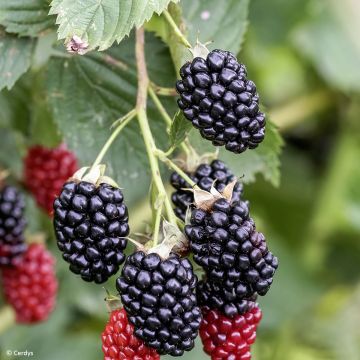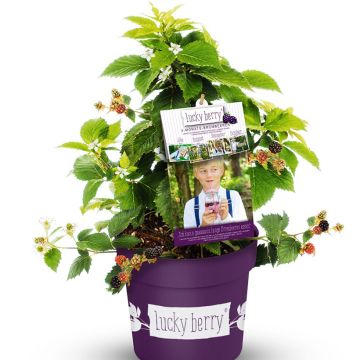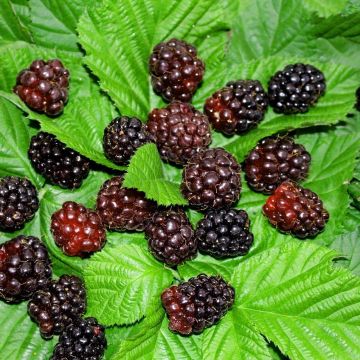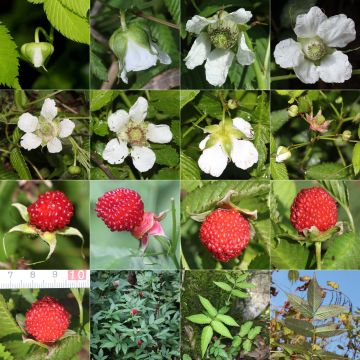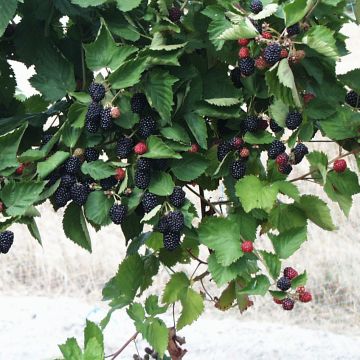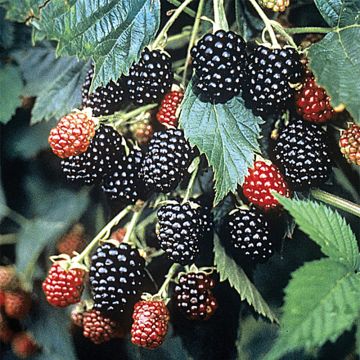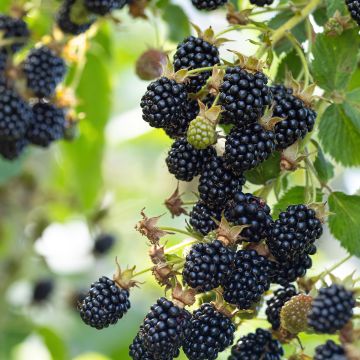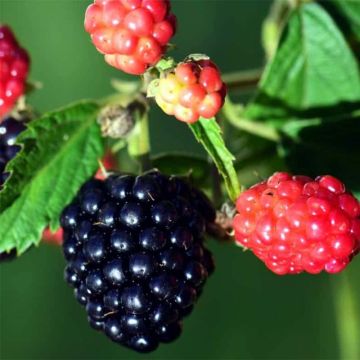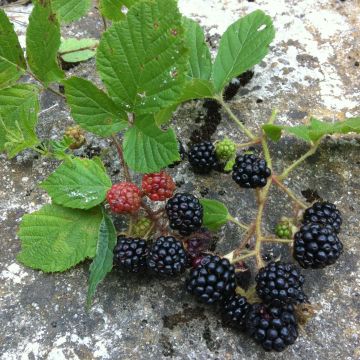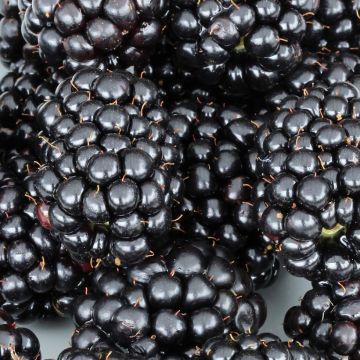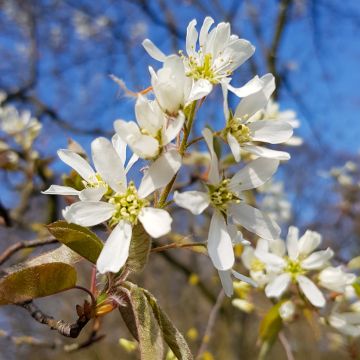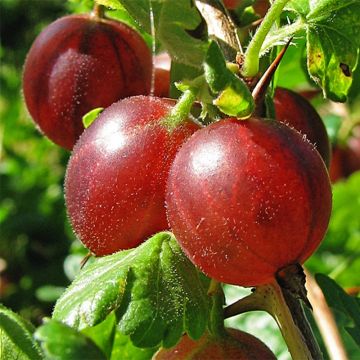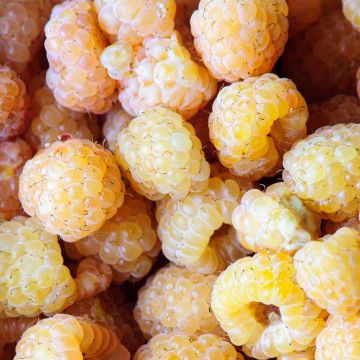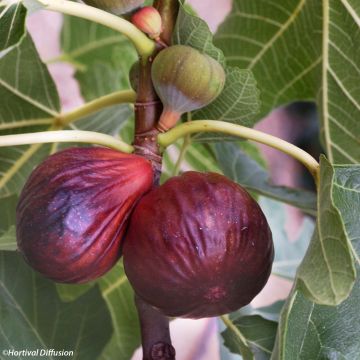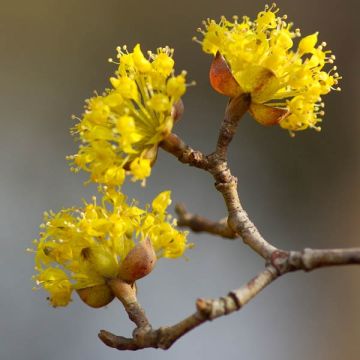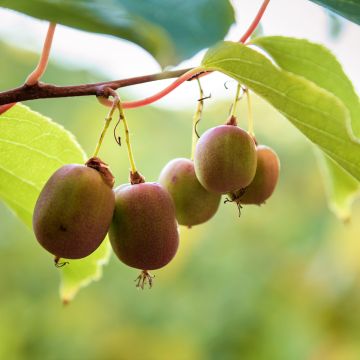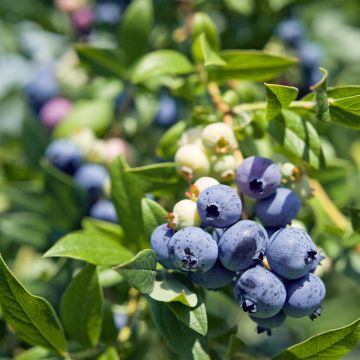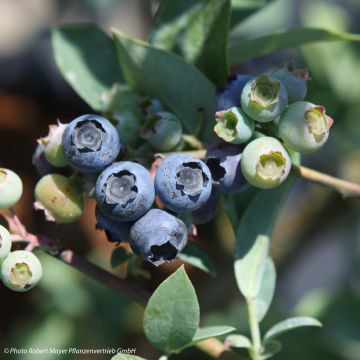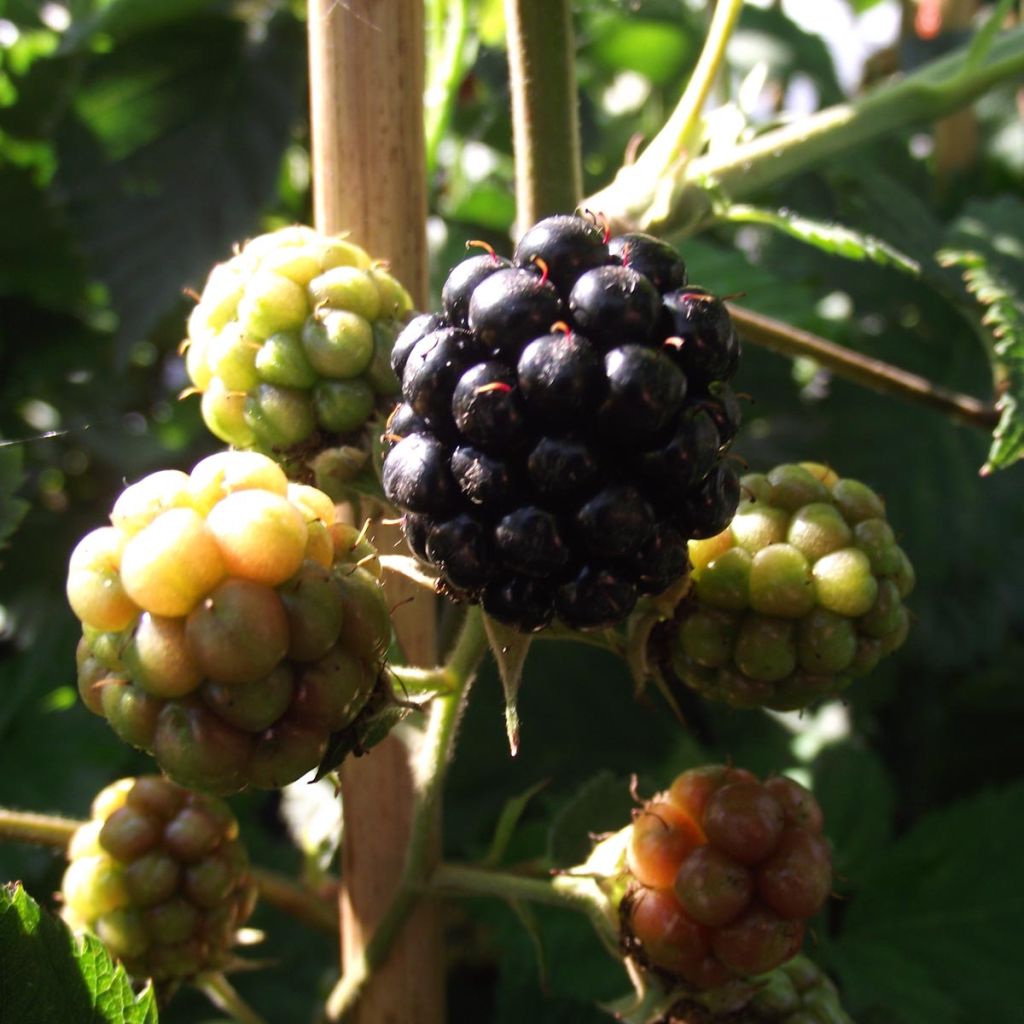

Rubus fruticosus Thornfree - Blackberry
Rubus fruticosus Thornfree - Blackberry
Rubus fruticosus Thornfree
Blackberry, Bramble
Very satisfied, beautiful subject, well ramified and rooted, delivered on time. Set up during the day, I will now prepare the pots to make the jelly.
Eric , 29/10/2020
Special offer!
Receive a €20 voucher for any order over €90 (excluding delivery costs, credit notes, and plastic-free options)!
1- Add your favorite plants to your cart.
2- Once you have reached €90, confirm your order (you can even choose the delivery date!).
3- As soon as your order is shipped, you will receive an email containing your voucher code, valid for 3 months (90 days).
Your voucher is unique and can only be used once, for any order with a minimum value of €20, excluding delivery costs.
Can be combined with other current offers, non-divisible and non-refundable.
Home or relay delivery (depending on size and destination)
Schedule delivery date,
and select date in basket
This plant carries a 6 months recovery warranty
More information
We guarantee the quality of our plants for a full growing cycle, and will replace at our expense any plant that fails to recover under normal climatic and planting conditions.

Description
Rubus fruticosus 'Thornfree' has a very rapid growth rate and produces an abundance of large, tasty, and juicy black fruits. Particularly vigorous and productive, it is a hardy plant that should be trained along a wall or on a sturdy trellis. It is a self-fertile variety, which yields a plentiful harvest in September. The fruits make excellent jams, jellies, or pies. Plant in ordinary soil, not too dry to moist, in full sun or partial shade.
Rubus fruticosus 'Thornfree' belongs to the Rosaceae family. It is a variety obtained in the USA, in Oregon and Washington. It is a perennial climbing and creeping plant, reaching maturity in two years, with branches that can reach 3 to 6m (10 to 20ft) in length, and with a stump that can occupy 0.5 to 1m (2 to 3ft) of ground. The foliage is deciduous, dark green, composed of compound and dentate leaves, with visible veins, very similar to wild blackberry leaves. The stems are inermous, they only live to bear fruit (2 years) and are gradually replaced by suckers originating from the stump. The abundant and nectar-producing flowering bears numerous small pale-pink flowers, 1.5cm (1in) in diameter, grouped in clusters. It occurs from July to August. The fruits are formed by drupes stuck to the receptacle. The large berries are red before turning black in September when ripe. They should be picked when fully black, when they are sweet and tangy, juicy and tasty. The fruits can be consumed fresh, frozen, in pies, or made into jam.
This thornless blackberry has long flexible branches that must be trained along a fence, wall, or trellis. Hardy and easy to grow, it can thrive in ordinary, fertile, moist but well-drained soil. It will thrive against a sunny or partially shaded wall, highlighting the bare wood of the flexible branches in winter. Thornless blackberries are hybrids derived from the thornless common bramble, Rubus var. inermis, itself obtained by crossing the bramble and the raspberry. Extensive improvement and selection work has resulted in numerous particularly productive thornless varieties, most of which originate from America.
Report an error about the product description
Rubus fruticosus Thornfree - Blackberry in pictures
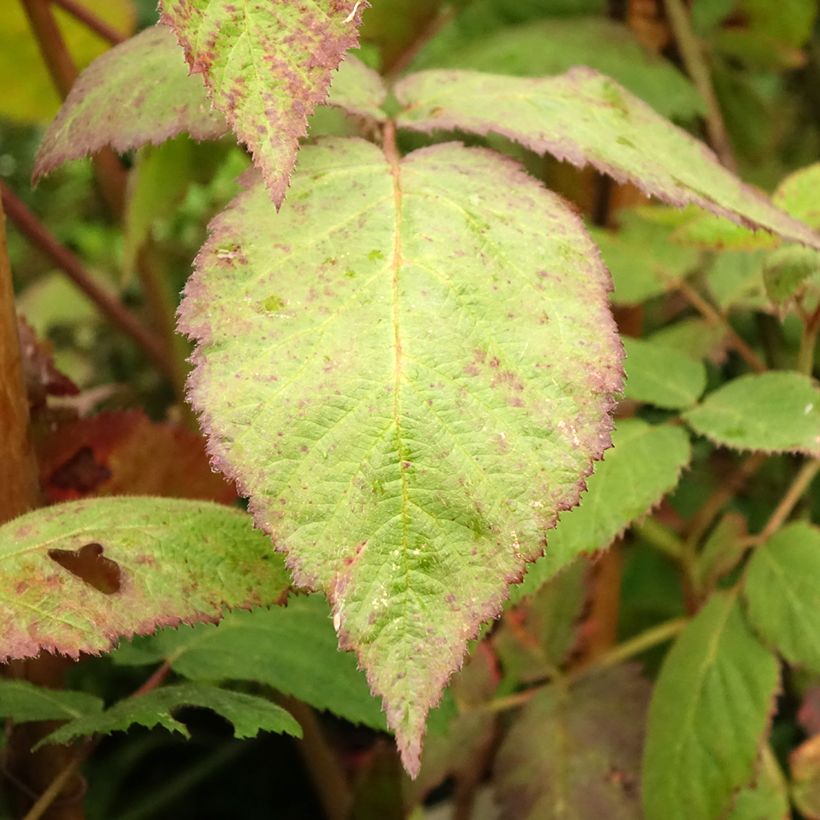

Plant habit
Fruit
Flowering
Foliage
Botanical data
Rubus
fruticosus
Thornfree
Rosaceae
Blackberry, Bramble
Cultivar or hybrid
Other Blackberry bush
View all →Planting and care
It prefers deep, fertile soils, not too dry to moist, but it is a low-maintenance plant that will adapt to any ordinary soil that is not too dry. This blackberry fruits in the sun, or in partial shade. It can grow in full shade, but the fruits won't be as good. When grown in a pot, it can be planted all year round. However, it is preferable to plant it in the garden in autumn, from September to November. Dig a hole much larger than the root ball. Scratch the root ball with a slightly sharp tool to loosen the root mass and promote establishment. Place the bush in the hole without burying it too deep. Water well to compact the soil and remove air around the roots. It is important to ensure that the plant does not lack water during the first year following planting. An application of organic fertiliser is beneficial at the start of growth. This self-fertile variety produces better when planted in association with other varieties. Train the new canes as they grow.
Planting period
Intended location
Care
-
, onOrder confirmed
Reply from on Promesse de fleurs
Similar products
Haven't found what you were looking for?
Hardiness is the lowest winter temperature a plant can endure without suffering serious damage or even dying. However, hardiness is affected by location (a sheltered area, such as a patio), protection (winter cover) and soil type (hardiness is improved by well-drained soil).

Photo Sharing Terms & Conditions
In order to encourage gardeners to interact and share their experiences, Promesse de fleurs offers various media enabling content to be uploaded onto its Site - in particular via the ‘Photo sharing’ module.
The User agrees to refrain from:
- Posting any content that is illegal, prejudicial, insulting, racist, inciteful to hatred, revisionist, contrary to public decency, that infringes on privacy or on the privacy rights of third parties, in particular the publicity rights of persons and goods, intellectual property rights, or the right to privacy.
- Submitting content on behalf of a third party;
- Impersonate the identity of a third party and/or publish any personal information about a third party;
In general, the User undertakes to refrain from any unethical behaviour.
All Content (in particular text, comments, files, images, photos, videos, creative works, etc.), which may be subject to property or intellectual property rights, image or other private rights, shall remain the property of the User, subject to the limited rights granted by the terms of the licence granted by Promesse de fleurs as stated below. Users are at liberty to publish or not to publish such Content on the Site, notably via the ‘Photo Sharing’ facility, and accept that this Content shall be made public and freely accessible, notably on the Internet.
Users further acknowledge, undertake to have ,and guarantee that they hold all necessary rights and permissions to publish such material on the Site, in particular with regard to the legislation in force pertaining to any privacy, property, intellectual property, image, or contractual rights, or rights of any other nature. By publishing such Content on the Site, Users acknowledge accepting full liability as publishers of the Content within the meaning of the law, and grant Promesse de fleurs, free of charge, an inclusive, worldwide licence for the said Content for the entire duration of its publication, including all reproduction, representation, up/downloading, displaying, performing, transmission, and storage rights.
Users also grant permission for their name to be linked to the Content and accept that this link may not always be made available.
By engaging in posting material, Users consent to their Content becoming automatically accessible on the Internet, in particular on other sites and/or blogs and/or web pages of the Promesse de fleurs site, including in particular social pages and the Promesse de fleurs catalogue.
Users may secure the removal of entrusted content free of charge by issuing a simple request via our contact form.
The flowering period indicated on our website applies to countries and regions located in USDA zone 8 (France, the United Kingdom, Ireland, the Netherlands, etc.)
It will vary according to where you live:
- In zones 9 to 10 (Italy, Spain, Greece, etc.), flowering will occur about 2 to 4 weeks earlier.
- In zones 6 to 7 (Germany, Poland, Slovenia, and lower mountainous regions), flowering will be delayed by 2 to 3 weeks.
- In zone 5 (Central Europe, Scandinavia), blooming will be delayed by 3 to 5 weeks.
In temperate climates, pruning of spring-flowering shrubs (forsythia, spireas, etc.) should be done just after flowering.
Pruning of summer-flowering shrubs (Indian Lilac, Perovskia, etc.) can be done in winter or spring.
In cold regions as well as with frost-sensitive plants, avoid pruning too early when severe frosts may still occur.
The planting period indicated on our website applies to countries and regions located in USDA zone 8 (France, United Kingdom, Ireland, Netherlands).
It will vary according to where you live:
- In Mediterranean zones (Marseille, Madrid, Milan, etc.), autumn and winter are the best planting periods.
- In continental zones (Strasbourg, Munich, Vienna, etc.), delay planting by 2 to 3 weeks in spring and bring it forward by 2 to 4 weeks in autumn.
- In mountainous regions (the Alps, Pyrenees, Carpathians, etc.), it is best to plant in late spring (May-June) or late summer (August-September).
The harvesting period indicated on our website applies to countries and regions in USDA zone 8 (France, England, Ireland, the Netherlands).
In colder areas (Scandinavia, Poland, Austria...) fruit and vegetable harvests are likely to be delayed by 3-4 weeks.
In warmer areas (Italy, Spain, Greece, etc.), harvesting will probably take place earlier, depending on weather conditions.
The sowing periods indicated on our website apply to countries and regions within USDA Zone 8 (France, UK, Ireland, Netherlands).
In colder areas (Scandinavia, Poland, Austria...), delay any outdoor sowing by 3-4 weeks, or sow under glass.
In warmer climes (Italy, Spain, Greece, etc.), bring outdoor sowing forward by a few weeks.






























